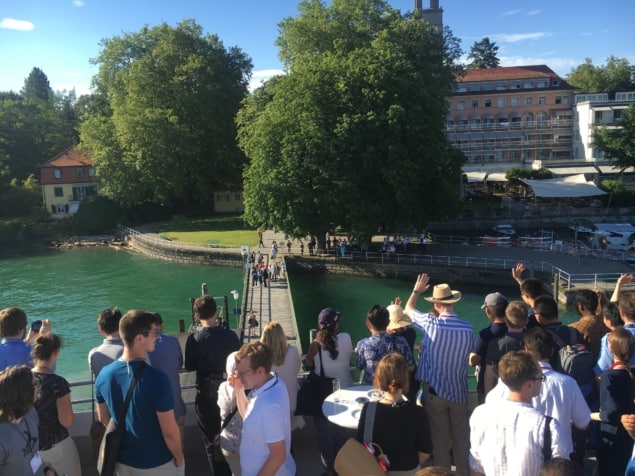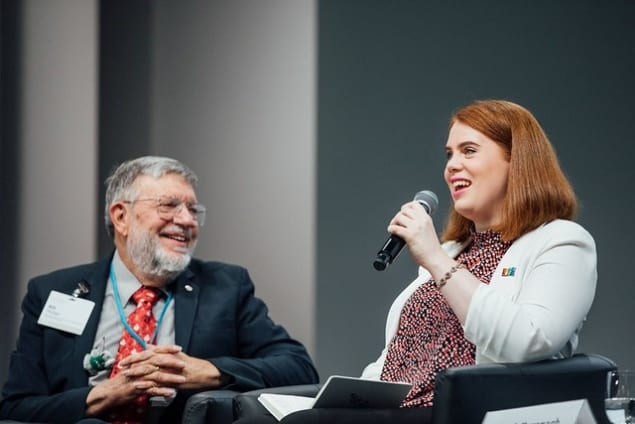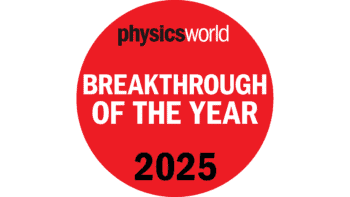
The cobbled streets of Lindau are that bit quieter now that the 69th Lindau Nobel Laureate Meeting has finished. The meeting wrapped up in style on Friday with a cruise to the flower-covered island of Mainau. Returning to Lindau, partying ensued onboard with a live band. At the penultimate stop, the fancy Hotel Bad Schachen, laureates were given an affectionate farewell. As they walked up the wooden jetty to their accommodation, young scientists cheered and banged on the metal hull of the boat.
Earlier on Mainau, attendees had made their way to a large marquee on top of the island for a moving Q&A with Yemeni Nobel peace laureate Tawakkol Karman and a thought-provoking panel, How Can Science Change the World for the Better?
On the walk, I chatted to Maria Żurek, a postdoc at the Lawrence Berkeley National Laboratory, about a panel she took part in two days earlier, “Student, Postdoc, and Then? – Aiming for a Career in Science”. You can watch the entire discussion here.

One key issue raised by a young scientist in the audience was that of leaving academia and how this is perceived. Responding, fellow panellist Niamh Kavanagh of University College Cork talked of her personal experience. Kavanagh is close to submitting her PhD thesis in photonics, but the hard reality that only a minority of PhD students will secure permanent positions in academia prompted Kavanagh to think carefully about her options.
Her final decision was to focus on opportunities elsewhere, she told the audience. “I want to give myself the most options and set myself up for success in whatever that means for me.” However, her choice hasn’t always been met positively. “I’ve had responses like ‘Oh, that’s a pity’. So that’s quite difficult to deal with.”
Laureate Donna Strickland, also on stage, was supportive of non-academic paths. “We need scientists in many different jobs,” she said, citing how politics can benefit from scientific minds, and how R&D can be just as rewarding in industry – and even ahead of academic research in some fields.
Wolfgang Ketterle, another laureate panellist, was also encouraging. He suggested that young researchers should invite alumni working outside academia back to their labs as guest speakers, something that already happens at MIT. “[They] tell our current grad students and postdocs what they have done, how they transitioned and how they feel now after a couple of years,” he said. “I felt that this has been an extremely valuable advice.”
Żurek was glad to see the matter addressed. “Nobel laureates who have influence … they are saying, ‘Yes, these career paths are also valid’,” she told me. “I think this is the only way to change the mindset of our community.”
Plenty more besides was covered by the panel. Discussion onstage and via Twitter on work-life balance, in particular for those with families, showed how this remains a tricky issue for young scientists – and one that has no easy answers.
Other topics included tips on how to change fields at postdoc level, who to turn to in difficult situations, how to handle failure, and the benefits of networking. All in all, plenty of food for thought for young scientists as they make their way home to all corners of the globe. Alles Gute und gute Reise!



